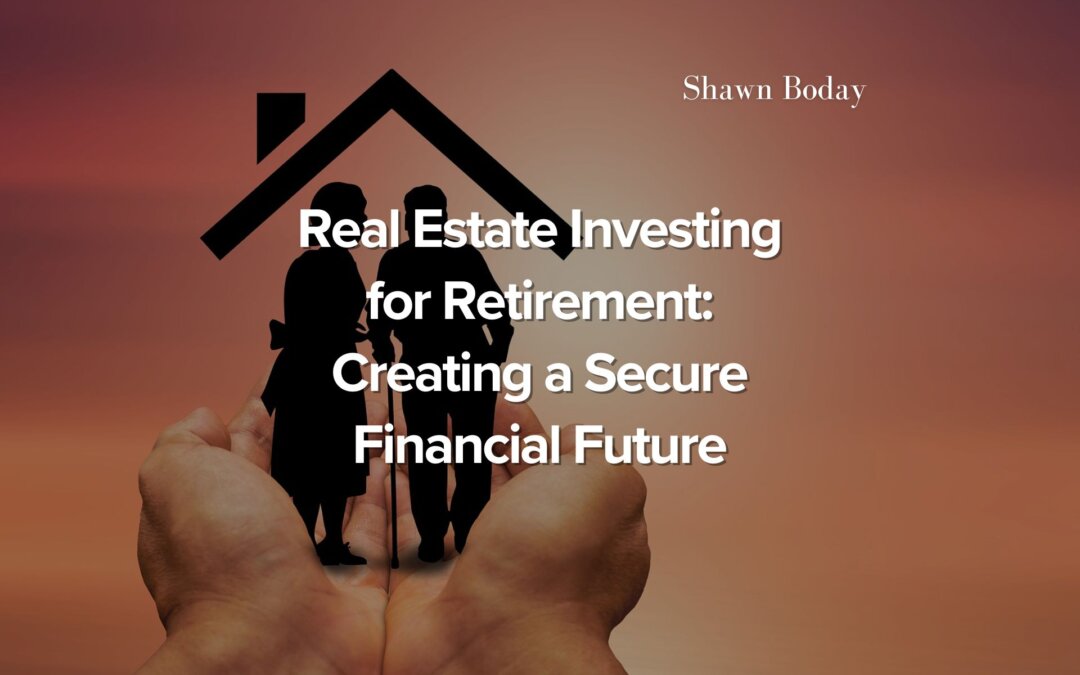
by Shawn Boday | Apr 25, 2024 | Home Buying Process, House Flipping, Housing Market, Real Estate, Real Estate Investing, Real Estate Tips, Real Estate Value, Shawn Boday, Uncategorized
Renovating a home can be an exciting project, whether planning to enhance your living space or preparing to sell your property. When renovating for resale, you must make strategic decisions to increase your home’s value and attract potential buyers. In this blog post, we’ll explore some valuable tips for renovating your home with resale in mind.
1. Know Your Market
Before embarking on any renovation project, it’s crucial to research the local real estate market and understand the preferences and expectations of potential buyers in your area. Take note of the features and amenities in high demand and are likely to fetch a higher sale price. For example, buyers may prioritize updated kitchens and bathrooms in some markets, while in others, outdoor living spaces or energy-efficient upgrades may be more desirable.
2. Focus on High-Return Projects
When renovating for resale, it’s important to prioritize projects that offer a high return on investment (ROI). According to Remodeling magazine’s annual Cost vs. Value report, some of the renovations with the highest ROI include kitchen remodels, bathroom upgrades, and adding a deck or patio. These projects not only enhance the aesthetic appeal of your home but also provide tangible value that can increase its resale value.
3. Enhance Curb Appeal
First impressions matter, especially when selling a home. Improving your home’s curb appeal can significantly attract potential buyers and set the stage for a positive viewing experience. Consider simple yet effective upgrades such as painting the exterior, replacing the front door, updating landscaping, and adding outdoor lighting. These improvements can make your home more inviting and memorable to prospective buyers.
4. Update Kitchen and Bathrooms
Kitchens and bathrooms are often the focal points of a home and can significantly influence a buyer’s decision. Consider updating these spaces with modern fixtures, appliances, and finishes to create a more functional and visually appealing environment. Focus on timeless design elements and quality materials that will appeal to many buyers and stand the test of time.
5. Increase Energy Efficiency
Energy-efficient upgrades reduce utility costs for homeowners and appeal to environmentally-conscious buyers looking for sustainable features in a home. Consider investing in energy-efficient appliances, windows, insulation, and HVAC systems to improve your home’s energy performance and attract eco-minded buyers. Highlighting these upgrades can also differentiate your property from others on the market and increase its overall value.
6. Optimize Storage Space
Buyers are always looking for ample storage space, so maximizing storage opportunities throughout your home can make a big difference in its appeal. Consider adding shelving, closet organizers, or storage solutions such as under-stairs or built-in cabinets. These additions can help buyers visualize themselves living in the space and make your home feel more organized and functional.
7. Keep It Neutral and Timeless
When renovating for resale, it’s essential to appeal to a broad audience by choosing neutral and timeless design elements. Avoid overly trendy or niche features that may appeal to only a subset of buyers and could potentially turn off others. Opt for neutral paint colors, classic finishes, and versatile design choices that will stand the test of time and appeal to a wide range of tastes and preferences.
Conclusion
Renovating a resale home requires careful planning, strategic decision-making, and focusing on projects that maximize value and appeal to potential buyers. By knowing your market, prioritizing high-ROI projects, enhancing curb appeal, updating key areas like kitchens and bathrooms, increasing energy efficiency, optimizing storage space, and keeping design choices neutral and timeless, you can increase your home’s resale value and attract more interested buyers. With thoughtful renovation choices and attention to detail, you can set your home apart from the competition and achieve a successful sale at a higher price point.

by Shawn Boday | Dec 11, 2023 | Real Estate, Real Estate Investing, Shawn Boday
In the intricate dance between economic factors and real estate dynamics, the ripple effects are both profound and nuanced. As an experienced observer of the real estate landscape, it becomes evident that economic variables wield substantial influence over property prices and demand. This article delves into the multifaceted relationship, exploring how economic intricacies shape the ever-evolving tapestry of the real estate market.
At the heart of this symbiotic relationship is the economic concept of supply and demand. As economic conditions fluctuate, so too does the demand for real estate. During periods of robust economic growth, individuals and businesses alike find themselves in a position to invest in property. This surge in demand often triggers an uptick in real estate prices, creating a climate where sellers can command higher values for their assets.
Conversely, economic downturns can cast a shadow over the real estate market. Job losses, tightened credit markets, and overall economic uncertainty can lead to a contraction in demand. In such times, potential homebuyers may postpone their plans, and sellers may find themselves in a more challenging position, grappling with decreased property values.
Interest rates, a fundamental economic lever, exert a profound influence on real estate dynamics. When interest rates are low, borrowing costs decrease, making mortgages more affordable. This tends to stimulate demand as prospective buyers capitalize on the favorable financing environment. Conversely, rising interest rates can have a cooling effect on the real estate market, prompting potential buyers to rethink their investment decisions.
Unemployment rates, another pivotal economic indicator, play a significant role in shaping the real estate landscape. High unemployment rates can lead to a decline in consumer confidence and purchasing power, causing a dip in property demand. Conversely, low unemployment rates contribute to a more optimistic economic environment, fueling demand for real estate.
Government policies and interventions further amplify the interplay between economics and real estate. Tax incentives, subsidies, and regulatory frameworks can either encourage or deter real estate transactions. For instance, tax credits for first-time homebuyers can stimulate demand, while stringent lending regulations may have a constraining effect.
The broader economic context also extends its influence to the commercial real estate sector. Businesses, sensitive to economic conditions, adjust their spatial needs in response to market dynamics. Economic downturns may lead to downsizing and reduced demand for commercial space, while periods of economic prosperity can drive expansion and heightened demand for office and retail spaces.
In the contemporary landscape, the rise of remote work as a consequence of technological advancements and global events has introduced a new layer of complexity. Economic factors now intertwine with shifts in work patterns, impacting real estate preferences. Suburban and rural areas may experience increased demand as remote work allows individuals to reconsider the importance of proximity to urban centers.
In conclusion, the symbiotic relationship between economic factors and real estate trends is a dynamic and intricate interplay. As an experienced observer, one must navigate the ever-changing landscape, recognizing that economic conditions serve as both architects and disruptors in the realm of property values and demand. A nuanced understanding of these factors equips stakeholders to adapt and thrive in an environment where the only constant is change.

by Shawn Boday | Oct 9, 2023 | Real Estate, Real Estate Investing, Real Estate Tips, Shawn Boday
Real estate investment, particularly in the context of retirement planning, can prove to be a strategic financial move. Diversifying one’s investment portfolio with real estate assets, including residential and commercial properties, can lay a foundation for a secure financial future during retirement.
One of the prominent benefits of real estate investment in retirement planning is the potential for generating a consistent income. Rental properties, for example, can provide a steady cash flow through monthly rental payments from tenants. This predictable income stream can help meet living expenses during retirement and offer financial security.
Property appreciation is another significant advantage associated with real estate investment. Over time, the value of a property tends to increase, potentially leading to substantial capital gains. This appreciation can result from a variety of factors, such as location, improvements made to the property, and overall market conditions. When strategically timed, property sales can unlock substantial profits to bolster retirement savings.
Real estate investments also offer a hedge against inflation. Historically, property values and rental incomes tend to rise with the general increase in prices. Real estate assets, in this regard, can act as a safeguard against the eroding purchasing power of money, ensuring a sustained and comfortable lifestyle during retirement.
Leverage is a strategic tool in real estate investing. By utilizing financing options like mortgages, investors can control a substantial asset with a relatively small initial investment. Rental income can be employed to cover mortgage payments while simultaneously building equity in the property.
Nonetheless, prudent decision-making is vital in real estate investing. A thorough assessment of potential risks and rewards, market trends, property condition, and location is essential. Engaging professional advice from real estate advisors or brokers can assist in making informed investment choices.
Additionally, diversification within real estate investments is crucial. Allocating investments across different types of properties and geographic locations can mitigate risks and enhance the overall stability of the investment portfolio.
Real estate investment, when integrated into retirement planning, provides an avenue for a secure financial future. This can be achieved through reliable rental income, property appreciation, inflation resilience, and strategic leveraging. However, careful evaluation and diversification within the realm of real estate investments are paramount for a successful and secure retirement strategy.

by Shawn Boday | Oct 9, 2023 | Housing Market, Real Estate, Shawn Boday
The real estate market, like many other economic sectors, operates in cycles characterized by periods of growth and decline. These cycles, often referred to as market cycles, play a significant role in shaping investment strategies and outcomes in the real estate industry. Understanding the dynamics of these market cycles is crucial for real estate investors aiming to navigate the market effectively and make informed decisions.
1. Expansion Phase:
The real estate market cycle begins with an expansion phase. During this phase, various economic and demographic factors contribute to an increase in demand for real estate properties. Key factors such as population growth, low interest rates, and a thriving economy stimulate this demand. This heightened demand leads to rising property values and an upswing in property development. Investors observe potential opportunities during this phase and actively engage in property acquisitions and investments.
2. Peak Phase:
Following the expansion phase, the market reaches its peak. Property values are at their highest during this period. The demand for real estate continues to be strong, attracting investors seeking to capitalize on the rising prices. However, it is essential to recognize that this high demand is unsustainable in the long term. Economic indicators may signal the approaching shift towards the next phase.
3. Contraction Phase:
As the market approaches the peak phase, it gradually enters a contraction phase. Factors such as increased interest rates and market saturation contribute to a decline in demand for real estate. Property values stabilize or experience a slight decrease. This phase can pose challenges for speculative investors who may find it difficult to sell properties at the peak prices they had anticipated.
4. Trough Phase:
The trough phase follows the contraction phase and represents the lowest point in the market cycle. Demand remains subdued, leading to further declines in property prices. This phase presents opportunities for strategic investors who are keen on acquiring properties at lower prices, anticipating the subsequent expansion phase.
Understanding and predicting these market cycles is paramount for real estate investors. The timing of property acquisition in the cycle can significantly impact investment returns. Buying at the peak might lead to financial challenges, while strategic acquisitions during the trough can result in substantial returns when the market rebounds.
Factors such as interest rates, economic trends, and government policies play significant roles in influencing market cycles. Investors must stay well-informed about these factors to make informed investment decisions. Strategies like diversification, comprehensive market analysis, and adopting a long-term investment approach can help mitigate risks associated with market volatility.
Comprehending the dynamics of real estate market cycles is fundamental for success in real estate investment. Investors need to remain attuned to economic shifts and market trends to make sound decisions throughout the different phases of the market cycle. By doing so, they can optimize their investments and navigate the real estate market with confidence.

by Shawn Boday | Feb 7, 2023 | Real Estate, Shawn Boday
Are you looking to expand your real estate knowledge? Podcasts are an excellent source of information on investing, home improvement, and the latest housing news. With so many real estate podcasts available, it can be a challenge finding ones that are worth your time. To make it easier, here are 10 of the top real estate podcasts that span a range of topics related to property and housing.
The Indicator from Planet Money
For those looking to gain a better grasp on business and economics and work in quickly and easily understandable terms, check out The Indicator from Planet Money, a 10-minute podcast that explores “big ideas” related to the economy. Topics include home sales, moving trends, the commercial market, and renting, with each episode featuring data releases or findings and how they affect consumers and the economy. Perfect for buyers, sellers, homeowners, and investors.
BiggerPockets: The Real Estate Investing Podcast
The BiggerPockets Real Estate Podcast is a popular weekly podcast that features informal and fun interviews with a variety of investors and entrepreneurs. Guests range from well-known names like Matthew McConaughey and Ken Corsini from HGTV’s “Flip or Flop Atlanta” to industry players who share their experiences and advice. Hosted by Rob Abasolo and David Greene, this podcast is perfect for beginner and intermediate investors.
Real Estate Today
Real Estate Today is a radio program and podcast hosted by Stephen Gasque, the broadcasting and multimedia communications director for the National Association of Realtors. With hundreds of episodes, the program covers topics such as purchasing a second home, home buying for millennials, maximum selling secrets, creating a smart home, and first-time buying. This is a great resource for buyers, sellers, homeowners, and investors.
Homebuyer Radio
This podcast is the perfect resource for homebuyers, both first-timers and repeat buyers. Hosted by Dan Moralez, a mortgage expert and loan officer in Michigan, it covers topics such as credit repair, getting preapproved for a loan, mortgage comparison shopping, and tips for self-employed homebuyers. With over 150 episodes, it offers a wealth of insider secrets and helpful advice to make the home buying process easier.
Martini Mortgage Podcast
The Martini Mortgage Podcast, hosted by lending expert Kevin Martini from Raleigh, North Carolina, offers listeners a wealth of knowledge and advice on the ins and outs of getting a mortgage loan and purchasing a home. Over 150 episodes, listeners can learn about topics like winning bidding wars, improving credit, tax credits for first-time buyers, avoiding forbearance, and home affordability. Ideal for sellers and buyers, this podcast is a great resource to help navigate the homebuying process.
The Money Pit Home Improvement Podcast
This podcast, which is also a nationally syndicated radio program, focuses on home improvement and repair. Hosted by experts Leslie Segrete and Tom Kraeutler, the podcast covers a wide range of topics related to homeowners and DIYers. Popular episodes from the over 1,500 available include four popular home improvement hacks, stress-free closet organization, germ-free faucets, high-return home improvements, and the best kitchen lighting. It is perfect for homeowners planning to remodel.
The Remote Real Estate Investor
The Remote Real Estate Investor podcast is the perfect resource for remote and out-of-state investors interested in real estate. Hosts Emil Shour, Tom Schneider, and Michael Albaum explore a range of topics, from finding the hottest markets to analyzing properties from afar and avoiding common pitfalls. Perfect for those looking to invest in real estate without actually living near the property.
Making Money in Multifamily
If you are interested in investing in multifamily properties, you should check out the Making Money in Multifamily podcast. Host Dave Morgia is a real estate investor and interviews industry experts to discuss the practices and principles for successful investing in this field. He also dives into deals that didn’t meet expectations and why they failed. It’s perfect for those who are just starting out or experienced in multifamily investing.
Best Real Estate Investing Advice Ever
Joe Fairless hosts this popular podcast that has had over 3,000 episodes, offering daily real estate investing advice. His journey began with low-cost single-family homes, and now his portfolio is worth billions. This podcast provides insight into commercial real estate investing and helps listeners navigate through uncertain markets. It’s a great resource for both novice and experienced investors.
Real Estate News for Investors
This podcast is ideal for beginner and experienced real estate investors, as well as news buffs. Host Kathy Fettke, co-CEO of the Real Wealth Network and author of “Retire Rich With Rentals,” reviews the latest reports from national organizations and market data analysis to inform listeners about building and holding a real estate investment portfolio. Topics range from the best real estate markets to investing in property values and tax law, as well as news and information for real estate flippers.





